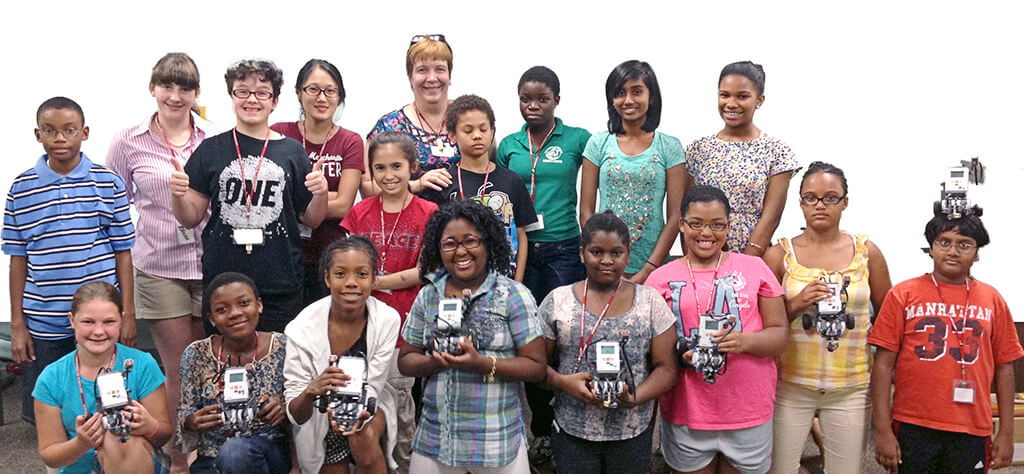- February 25, 2014
- By Karen Shih ’09
Computer science majors are more likely than any other to get job offers before graduation, and at generous salaries. But in the next decade, there will be a million more jobs in the field than students pursuing degrees in it, according to recent projections. Doesn’t compute, right? One key factor in the shortage, however, is clear: Women aren’t joining the computer science workforce.
While 37 percent of computer science degrees were awarded to women in 1984, that number dropped to 17 percent in 2011, according to the National Center for Education Statistics. Maryland's numbers mirror the national trend, with the number of female computer science graduates dropping from 38 to 9 percent since 1984.
The university is tackling the problem with the launch in January of the Maryland Center for Women in Computing, which offers summer camps and after-school programs for K-12 girls, as well as supports undergraduate and graduate women so they stick with computer science.
“Computer science offers some of the highest-paying jobs, and we’re losing a good portion of the workforce,” says computer science lecturer Jandelyn Plane, who directs the center. “Every point in the pipeline is leaking and we need to repair it.”
There are a variety of factors leading to the decline of women in the field, but Plane thinks stereotypes are one of the biggest problems, leading too many girls to think they don’t belong.
“They see the definition of computer science as an inch wide,” she says. “We want to show them at that computing is in every other field, whether you’re interested in biology or art.”
The center, supported by the College of Computer, Mathematical, and Natural Sciences, the Department of Computer Science and the Institute for Advanced Computer Studies, is developing a “curriculum in a box” of video lessons and worksheets that middle school teachers can download for free. It's based on Plane's curriculum from the CompSciConnect summer/weekend camp she created over the last two years and expanded into an afterschool program this semester.
She and four undergraduate students are working with sixth- and seventh-grade girls at College Park Academy, using a variety of games and tools to show them the breadth of computing. These include Scratch, a programming language for animation; Mindstorms Lego Robotics, in which students build and program robots; and website building, along with cryptology and math exercises.

Sophomore Isabella Coronado is helping to design the curriculum and teach the middle school students.
“I hadn’t ever coded before college, so I think it would have been really great if I had an opportunity like this,” says Coronado, whose father is a computer scientist. “I didn’t have that many experiences other than the ones my dad shared with me.”
It’s all about keeping it fun: At last year’s Maryland Day, students programmed their robots to follow a flashlight, allowing young children to control the robots in a dark room along with exercises where visitors could learn programming and cryptology. They'll be back at this year's event with something similar.
“I personally enjoy working with kids because their thirst for knowledge is so refreshing,” Coronado says. “I’m still learning, but it felt great to share my knowledge with them.”
